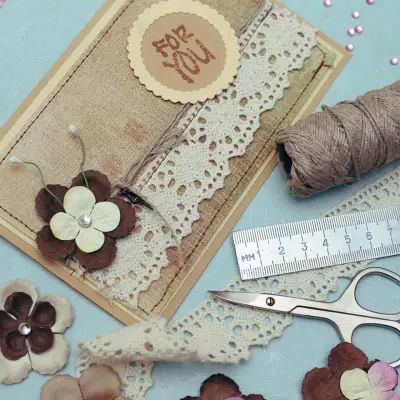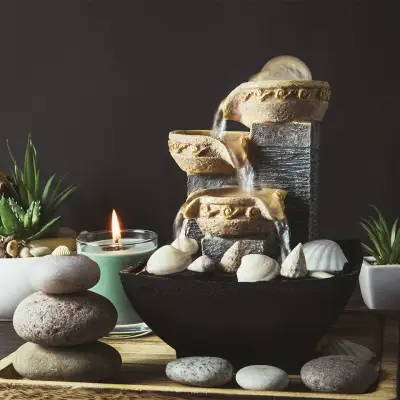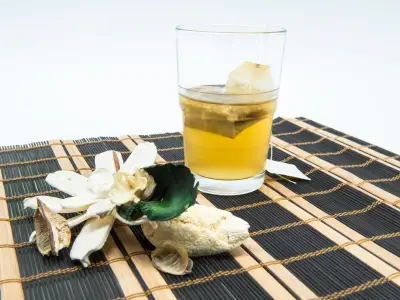Have you ever walked into a room and immediately felt a strong sensation of peace? The Chinese practice of arranging objects and spaces to harmonise with the flow of energy, known as feng shui, may offer an explanation.
This ancient Chinese art is a philosophy aimed at balancing the energies in any given space to assure health, happiness, and prosperity. Whether you're newly introduced to the concept or seeking to refine your existing knowledge, our journey through room-by-room feng shui home decoration will illuminate your path. Let's explore how to feng shui your home, transforming it into a sanctuary of positive energy, room by room.
- What is Feng Shui?
- What Does Feng Shui Mean?
- The Entrance: Welcoming Positive Energy
- The Living Room: A Space of Harmony and Connection
- The Bedroom: A Sanctuary for Rest and Rejuvenation
- The Kitchen: Nurturing Health and Wealth
- The Home Office: Enhancing Productivity and Prosperity
- The Bathroom and Wealth Areas: Protecting Your Resources
- The Garden: Creating a Flowing Space
- Frequently Asked Questions About Embracing Feng Shui in Your Home
What is Feng Shui?
Feng shui is about harmony between humans and their environment. The term itself combines the Chinese words for wind ('feng') and water ('shui'), both essential for attracting good fortune. Its principles are grounded in directing the flow of this vital energy, or 'chi', to foster balance and comfort in our living spaces.
Feng shui practitioners believe that carefully arranging elements such as furniture, colour, lighting, and decor can improve the energy in a space and promote well-being. It’s used in many aspects of Chinese culture, including architecture, interior design and even city planning!
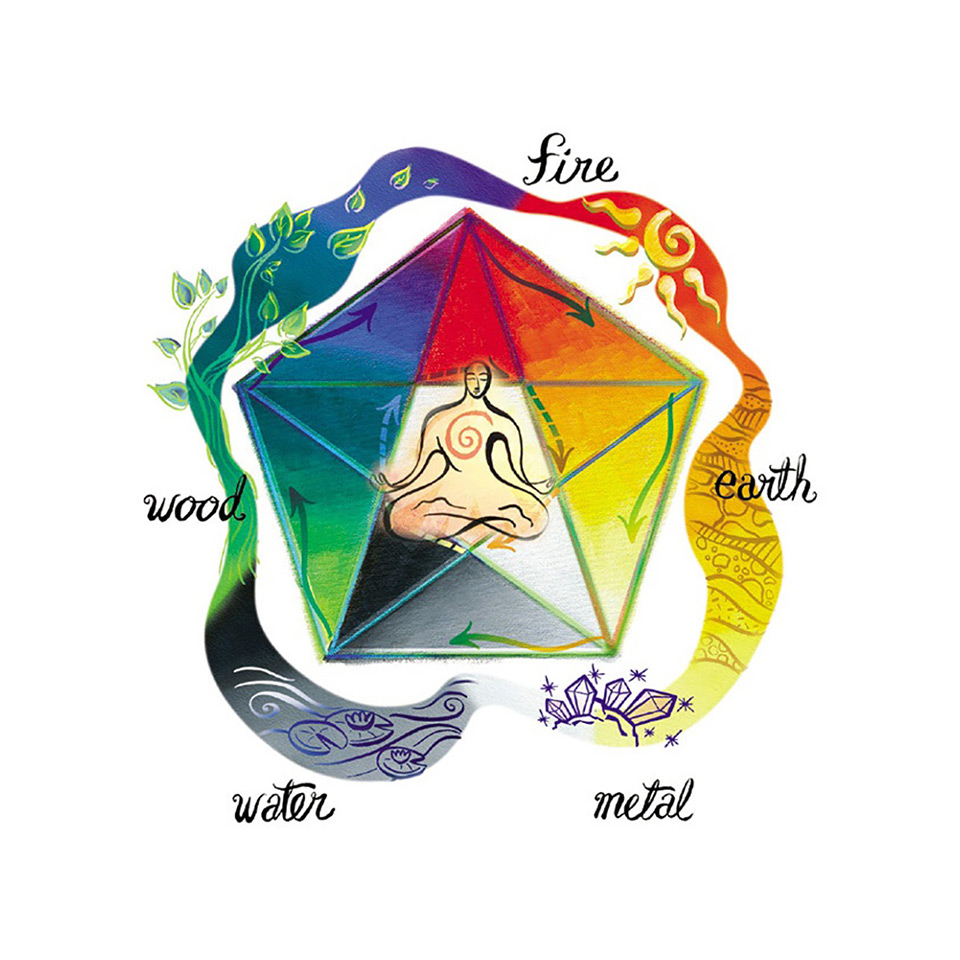
What Does Feng Shui Mean?
The words "feng shui" in English translate to "wind-water" in Mandarin Chinese. This refers to the natural elements that feng shui seeks to balance and harmonise in the environment, as wind and water are seen as two of the most important factors that shape the land and affect the flow of energy.
Now we’ve got a basic understanding of what feng shui is, let’s take a closer look at how it can be applied to different rooms in our homes. From the bedroom to the living room, each space has its own unique energy flow that can be optimised for better health, wealth, and happiness.
The Entrance: Welcoming Positive Energy
The front door is the gateway for energy into your home, and colour plays an important role here. Feng shui front door colours are chosen based on their directional significance and the energy they invite.
For instance, a north-facing door benefits from blue or black, enhancing career and path in life, while a south-facing door flourishes with red or orange, promoting fame and social connections.
Feng Shui Tips for the Entrance:
- Ensure the area is well-lit and inviting.
- Keep it clutter-free to allow chi to circulate freely.
- Use a welcoming mat and consider placing feng shui plants for the front door like jasmine or peace lily to invite positive energy.
The Living Room: A Space of Harmony and Connection
The living room is often the central gathering place in a home, and feng shui principles can help create a welcoming and harmonious atmosphere.
One important element of feng shui in the living room is furniture placement. The sofa should be positioned against a solid wall, with a clear view of the door allowing for a sense of security and grounding. Chairs should be arranged in a circular or semi-circular pattern, facing each other to encourage communication and connection.
Colour is another important consideration for living room feng shui. Earthy tones like beige, brown, and green can help to create a sense of balance and stability. Soft, muted colours like blue or lavender can help promote relaxation, while brighter colours like red or orange can add energy and vitality.
Incorporating natural elements, such as plants or a water feature, can also enhance the feng shui of the living room. Plants bring a sense of life and vitality into any space, while something like a small fountain or aquarium can promote relaxation and tranquillity.
Furniture should be arranged to encourage conversation yet allow for unobstructed movement. For smaller living rooms, the feng shui emphasis should be on smart space usage, ensuring the room feels open and welcoming.
Tips for Enhancing Living Room Feng Shui:
- Place the sofa against a solid wall for support and position chairs so everyone can see the door.
- Incorporate plants in the living room for feng shui balance; lush greenery promotes growth and calm.
- Use mirrors wisely to create a sense of spaciousness, but avoid placing them directly opposite the door.
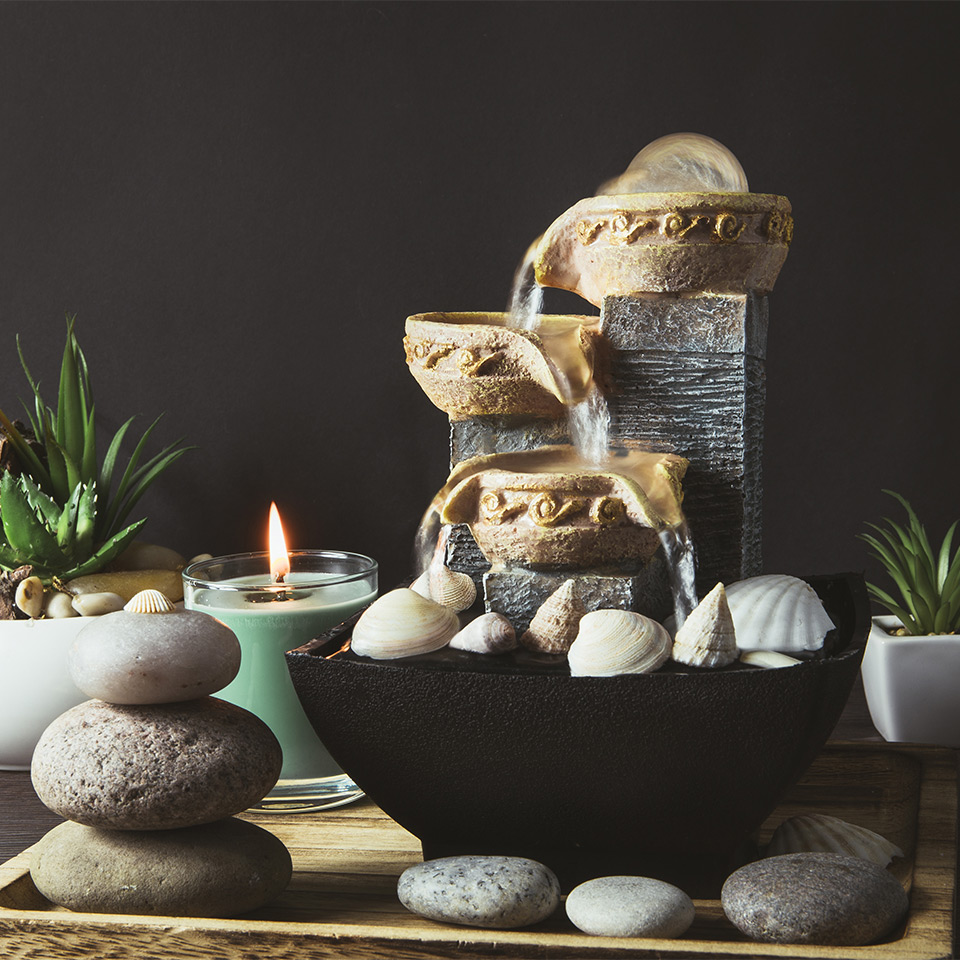
The Bedroom: A Sanctuary for Rest and Rejuvenation
The bedroom is a place of rest and rejuvenation, and incorporating feng shui only adds to this ambience.
In bedroom feng shui, the bed is the object of focus. A good feng shui bed position is against a solid wall, with a clear view of the door but not directly in line with it. This ensures a protective energy and a peaceful rest.
For wall paint and decor, soft, muted colours like blues, greens, and pastels are ideal for the bedroom. Avoid bright and stimulating colours like reds or oranges, as they can disrupt the relaxing vibe.
Additionally, clutter and electronics should be avoided. A cluttered bedroom can disrupt the flow of energy and create stress, so try to keep it tidy with minimal decor and personal items. Electronic devices—like TVs, computers, and smartphones—emit electromagnetic radiation that can interfere with sleep, so they should be kept out of the bedroom (or at least switched off overnight).
Creating Good Bedroom Feng Shui:
- Choose soothing colours, such as soft blues, greens, and earth tones, to encourage relaxation.
- Introduce feng shui bedroom plants like lavender or aloe vera to enhance peaceful vibes and air quality.
- Mirrors in the feng shui bedroom should be used sparingly and not reflect the bed to avoid energy disruption.
The Kitchen: Nurturing Health and Wealth
The kitchen is not just a place for cooking; it's a space that nurtures your family's health and wealth. In feng shui, the stove represents wealth, so its placement and cleanliness are essential.
The kitchen feng shui layout should promote a good flow of energy, making cooking and moving around easy and enjoyable.
Feng Shui Basics for the Kitchen:
- Keep the stove clean and in good working order, acknowledging it as a source of wealth.
- Use feng shui colours thoughtfully; green promotes growth and health, while yellow fosters digestion and warmth.
- Ensure the kitchen is well-lit and airy, with natural light and fresh air circulating freely.
The Home Office: Enhancing Productivity and Prosperity
The home office is an important area for productivity and creativity. Feng shui principles can help transform it into an environment that promotes focus, efficiency, and success.
In your home office, your desk should face a solid wall and you should have a clear view of the door. This will give you a greater sense of security and support while you’re working.
When it comes to colours, you have more options for your home office. Bright colours like yellow and orange can promote creativity and energy, whereas blues or greens enhance focus and concentration.
Clutter in your home office can hinder your concentration and disrupt a focused mindset, so it’s important to keep your desk and workspace tidy and organised. Use shelves and storage boxes to keep your files or other objects in order, and add some personal touches to your working area, such as a piece of art or a family photo.
Finally, add some plants to your home office. Plants look great and can breathe new life into your space. Some plants, like the peace lily or spider plant, are particularly effective at purifying air too, so they bring even more benefits to your home office.
Office Feng Shui Layout Tips:
- Position your desk in a commanding spot with a clear view of the door but not directly in line with it.
- Use colours that inspire productivity, such as blues for calmness or greens for growth.
- Keep the space clutter-free to promote mental clarity and efficiency.
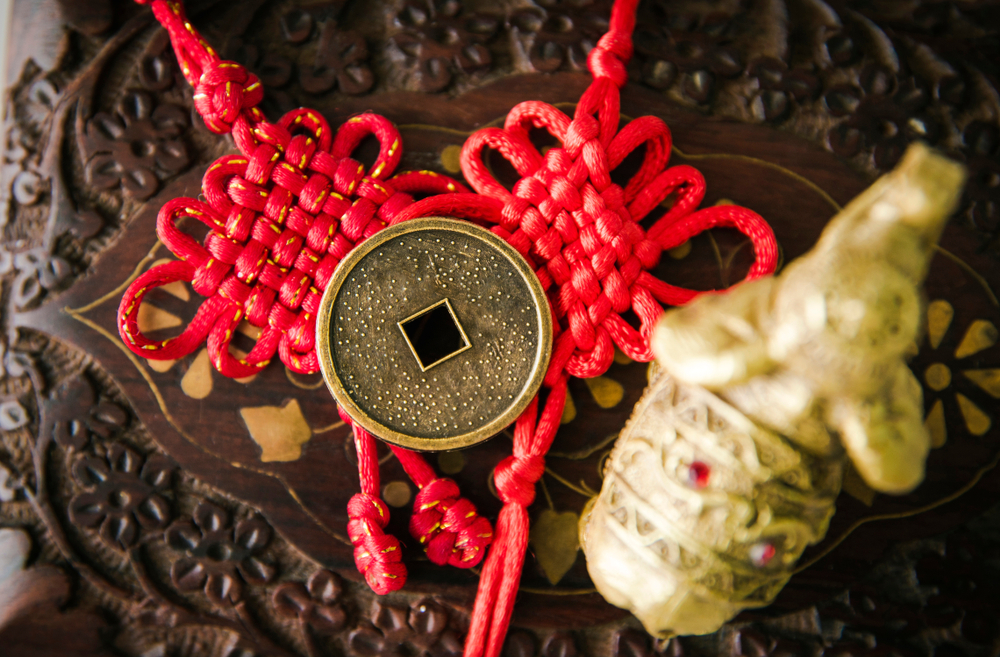
The Bathroom and Wealth Areas: Protecting Your Resources
Bathrooms can be tricky in feng shui since water is associated with wealth, and bathrooms can 'drain' energy. Keep the door closed and the toilet lid down to prevent wealth from escaping.
As for the wealth corner, typically found in the southeast area of your home or a specific room, activating this area with plants, moving water (like a small fountain), or wealth symbols can enhance your financial prosperity.
Tips for Bathroom Feng Shui and Wealth Areas:
- Introduce plants in bathroom feng shui to counteract energy drainage.
- Use mirrors wisely to expand the space visually and attract positive energy.
- In your wealth corner, place items that symbolise abundance to you, whether it's a bowl of coins, a wealth crystal, or a lush plant.
The Garden: Creating a Flowing Space
One of the primary principles of feng shui in the garden is to create a space that flows naturally. This means avoiding harsh angles, sharp corners, or straight lines that can disrupt the environment's natural energy flow. Instead, you should aim to create rounded or curved pathways and incorporate soft shapes and gentle curves into the overall design.
Your garden should balance the elements of water, fire, earth, wood, and metal. These elements are believed to influence the energy flow in a garden, and achieving a balance between them can help to create a harmonious environment. For example, a water feature can represent the element of water, while a statue or bench can represent the element of earth.
You should also keep pathways clear and remove dead or diseased plants. A well-maintained garden promotes a sense of calm and relaxation, helping to maintain a positive energy flow.
Frequently Asked Questions About Embracing Feng Shui in Your Home
How do I decorate my house with feng shui?
Decorating your house with feng shui involves arranging your living spaces to create balance with the natural world. This can be achieved by positioning furniture to allow for a smooth flow of energy, choosing specific colours to enhance the mood of each room, and incorporating natural elements like wood, fire, earth, metal, and water to create harmony.
What should be avoided in feng shui?
In feng shui, clutter can block the flow of energy. Sharp corners, also known as "poison arrows," should be softened or obscured, as they can create negative energy. Mirrors reflecting the bed, overhead beams, and direct door alignments (like the front door aligning with the back door) are also best avoided.
Where do you put feng shui items?
Feng shui items should be placed where they can enhance the chi or energy. For instance, mirrors should be placed in areas to expand the space visually and attract light. Plants, which promote growth and clean air, should be placed in living areas to enhance vitality. Water elements like fountains are best placed in the north, east, or southeast areas to attract wealth.
Where should feng shui be placed in a house?
Feng shui placement depends on the bagua, an energy map of your home. Each section corresponds to different life aspects, such as wealth, health, family, and love. Items should be placed according to the bagua to enhance the chi in that area of your life. For instance, the southeast sector is often associated with wealth, making it a great spot for plants or a water feature.
What is the first rule of feng shui?
The first rule of feng shui is to clear the clutter. Clutter can stagnate energy, create confusion, and hinder the flow of positive chi. A clean, well-organised space is fundamental to practising feng shui effectively.
What colour house is good feng shui?
The best colour for your house in feng shui depends on its direction. North-facing homes benefit from blues and blacks, east and southeast-facing homes thrive with greens, south-facing homes do well with reds, and west and northwest-facing homes are suited to whites and greys.
Recommended for you!
Best SellersWhat are some things that totally ruin the feng shui in a house?
Clutter, broken items, unused spaces, sharp corners, mirrors facing the bed, and toilets that are centrally located or directly opposite the kitchen or front door can all significantly disrupt a house's feng shui.
Why is feng shui illegal?
Feng shui itself is not illegal. However, its practice may be restricted in certain jurisdictions due to building codes or regulations that conflict with traditional feng shui principles. Always consult local guidelines when making structural changes based on feng shui.
What should you not put in the bedroom according to feng shui?
Avoid placing mirrors that reflect the bed, electronics which can disrupt sleep, and water features that might bring emotions and worry into the bedroom space. Plants are generally not recommended in the bedroom as they can introduce too much energy.
Where is the money corner in your house?
The money corner, according to feng shui, is located in the southeast area of your home or a specific room. Enhancing this area with elements that symbolise wealth can attract prosperity.
How do you bring positive energy into your home with feng shui?
Bringing positive energy into your home involves several practices, such as ensuring a clean and clutter-free space, using specific colours to enhance the energy of each room, positioning furniture and décor to encourage a healthy flow of chi, and incorporating elements of nature.
How do I feng shui my front door?
To feng shui your front door, use colours that correspond with its direction, ensure it opens smoothly, keep it well-lit, and make sure the path to the door is clear. A welcoming mat and plants can also enhance the positive energy.
Deepen Your Feng Shui Knowledge With Centre of Excellence
If you're intrigued by how feng shui can transform your home and life and you're eager to delve deeper into this fascinating practice, consider enrolling in our Feng Shui Diploma Course. It offers comprehensive insights into mastering feng shui to transform your living spaces and align yourself with the flow of positive energy.
Why Centre of Excellence?
- Accessibility: We believe that learning should be accessible to all, so we've set our course fees to be inclusive.
- Flexibility: Our courses are crafted to fit into your life, offering the freedom to learn at your own pace. This flexibility allows you to pursue your interest in feng shui without disrupting your daily routine.
- Comprehensive Curriculum: The course covers a variety of feng shui principles, from the basics to advanced techniques, ensuring a deep understanding of how to enhance the energy flow in any environment.
- Dedicated Support: Enrolment comes with personalised tutoring and access to a community of like-minded people, providing a strong support network.
Special Offer
We're excited to present our Feng Shui Diploma Course at the exceptional price of £29, offering savings of over £100.





